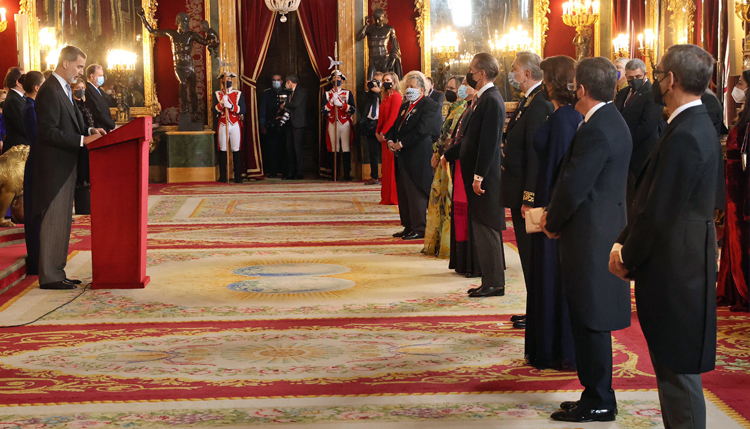The Diplomat
The Congress yesterday unanimously validated, with the critical support of the opposition, the Royal Decree Law that establishes measures for the “adaptation” of the Spanish legal system to the new situation generated by the definitive withdrawal of the United Kingdom from the European Union.
The Royal Decree Law, which was approved on 29 December by the Council of Ministers, regulates, on a temporary basis and in accordance with the principle of reciprocity, aspects such as professional practice, Social Security, unemployment benefits, health benefits, university studies, recognition of documents and qualifications, financial, commercial and business activities, public contracts and airport services.
These are “essential adaptation measures to facilitate the transition and counteract the undesired effects” of Brexit, explained the Minister of Foreign Affairs, Arancha González Laya, during her appearance before the plenary session of the Lower House yesterday. The majority of the measures in this decree, she added, “are temporary and subject to the principle of reciprocity” and will allow the United Kingdom to continue to be “a relevant partner with whom we will have close relations”.
The UK’s exit from the EU “is not the ideal situation that we would have wished for”, but once it has become a reality, it is necessary to face it “with the highest degree of legal certainty for our citizens”, continued the head of diplomacy, who asked the parliamentary groups to approve the Royal Decree-Law, bearing in mind “the exceptional situation” generated by Brexit.
During the subsequent debate, the parliamentary groups to the right of the Government voted in favour of the Royal Decree “out of responsibility” and as a “lesser evil”, but not without launching strong criticism of the Executive for the way it has handled this matter and for not having known how to take advantage of this “opportunity” to move towards Spanish sovereignty in Gibraltar.
This was the case of the PP spokeswoman for the Foreign Affairs Committee, Valentina Martínez Ferro, who announced her support for the Royal Decree because of the “urgency” of the moment and because it is “a procedure that provides us with a temporary legislative framework until the agreements on the future relationship are ratified”. However, she described as a “failure” the direct bilateral negotiations with the United Kingdom, which could have been a “historic negotiation” with regard to the future of Gibraltar and which in the end remained “a simple note on the sidelines of an agreement that only benefits those who work for it”.
For his part, the spokesman for Vox, José María Sánchez García, also accused the government of not having known how to take advantage of this opportunity to “negotiate more firmly and demand a bilaterally agreed agreement on Gibraltar”, which is why everything has remained in an agreement in principle that “only favours the interests” of the United Kingdom and the Gibraltarian government, something “unacceptable” for Spain.
Likewise, the spokesperson for Ciudadanos before the Foreign Affairs Committee, Marta Martín, admitted that the Royal Decree is “a lesser evil that had to be done”, but warned that there are still “issues to be discussed” regarding Gibraltar, which require more “transparency” and more consensus with all the political forces, because the issue of Brexit is “a question of State”. She also regretted that there is no “plan B” foreseen in the event that the United Kingdom does not comply with the principle of reciprocity.







